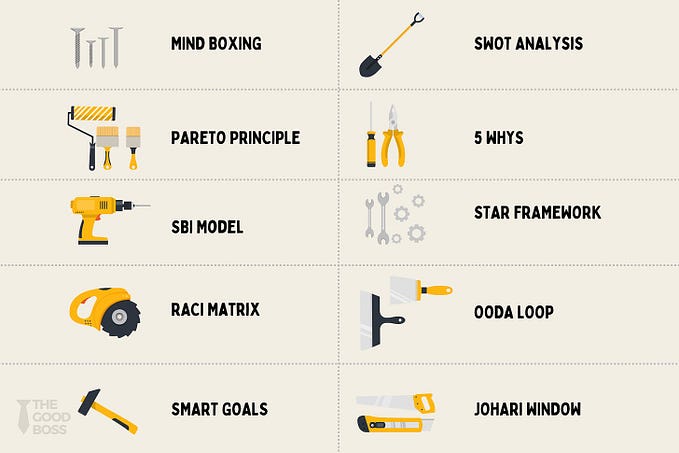You're reading for free via Dave Bailey's Friend Link. Become a member to access the best of Medium.
Member-only story
Management
How to Delegate Work So It Actually Gets Done
If you’ve ever found it difficult to get the results you want from other people, try this simple management technique

 Like many founders, when I started my first business, I was new to managing people. I loved getting stuff done and getting my hands dirty, so the idea of delegating work to others was unnatural. I’d always rather do it myself.
Like many founders, when I started my first business, I was new to managing people. I loved getting stuff done and getting my hands dirty, so the idea of delegating work to others was unnatural. I’d always rather do it myself.
When I did have to delegate, it often left me feeling frustrated. I’d find out later that the work hadn’t turned out as I’d expected, or it wasn’t even close to completion. I took it personally, and it weighed on my mind. I felt that if I wanted something done right, I had to do it myself. And as my workload increased, I rapidly approached burnout.
The problem with my approach
A few years ago, I realized I had been delegating all wrong. At the time, I had been in the process of hiring a senior marketer and had asked our office manager to research recruiting agencies, get in touch with each of them, and report back to me.
A couple of days later, the office manager gave me an update: He’d emailed several agencies, but most of them hadn’t responded. My heart sank. This didn’t help me one bit.
“Did you follow up with a phone call?” I asked.
“Sorry,” he replied. “I’ve only got limited time available. I just have too many other priorities.”
Later, I reflected on this situation with a mentor. The manager had done what I’d told him to do. Yet, here I was, frustrated and knowing that somehow the way I delegated wasn’t working out for me. My mentor then gave me some wise advice that has totally changed the way I assign projects.
Delegate problems, not tasks
When you’re in execution mode, you naturally think in terms of critical tasks, but good delegation requires you to think in terms of outcomes. I realized that the problem of filling my calendar with qualified candidates hadn’t been explicitly delegated — just the task of contacting recruiters. But if that specific problem had been assigned to be solved, I could’ve been on my way to interviewing and hiring the right person for the job.
The best workers tend to love to solve problems — and they hate being micromanaged.
Once you identify the core problem to delegate, check that it actually solves your problem. For example, interviewing candidates throughout the following week would have given me a scheduling problem. What I really wanted was to set aside a single morning for interviews.
Coach, don’t instruct
Delegating problems is only the first step. The next part is even more important: to help the person you’re delegating to find their solution. The job of a coach is to help others work through their problems and find their own solutions. When I started coaching founders, I learned some great people-management techniques that I wish I’d known earlier in my career.
The simplest and most relevant one is the GROW framework, created by Sir John Whitmore. Here’s how to use the GROW model when delegating problems:
1. Goal: Establish the goal
Once you’ve delegated the problem, ask your employee to explain what a good result would look and feel like. Answer any questions they ask to help them understand what outcomes would resolve the problem. Once the goal is clear, make sure they write it down.
2. Reality: Examine the current reality
Before jumping into solutions, allow your employee to get a handle on the situation. Use the following questions:
- Where are we now in relation to the goal?
- What’s working and what isn’t working?
- Is anything stopping you from making progress?
3. Options: Explore the options
Next, you want to help your employee examine different options that could address the problem. Pose questions like:
- What are your options?
- What else could you do?
- Who do you know who has encountered a similar situation?
As with any brainstorm, don’t shoot down any options just yet.
4. Will: Establish the will
Finally, get a commitment from the employee and help them map out their next steps. Again, let them come up with solutions by asking questions:
- What do you think you need to do right now?
- How will you know when you have done it?
- What resources can help you?
Scaling your business requires effective delegation. As you grow your company, the need to adopt a coaching relationship with your direct reports intensifies. The best workers tend to love to solve problems — and they hate being micromanaged. This is especially true if you’re hiring people who are better than you.
Effective delegation is also great for keeping your employees motivated. Solving problems helps people connect with their purpose, learn new things, and stay in control of their own destiny.
About me
Hi, I’m Dave Bailey and I’ve coached over 100 tech CEOs since 2016. Now I run Founder Coach, a global CEO program and network, dedicated to helping high-growth CEOs advance their craft. Click here if I can help.
News: Applications for the next intake at Founder Coach are now open.









